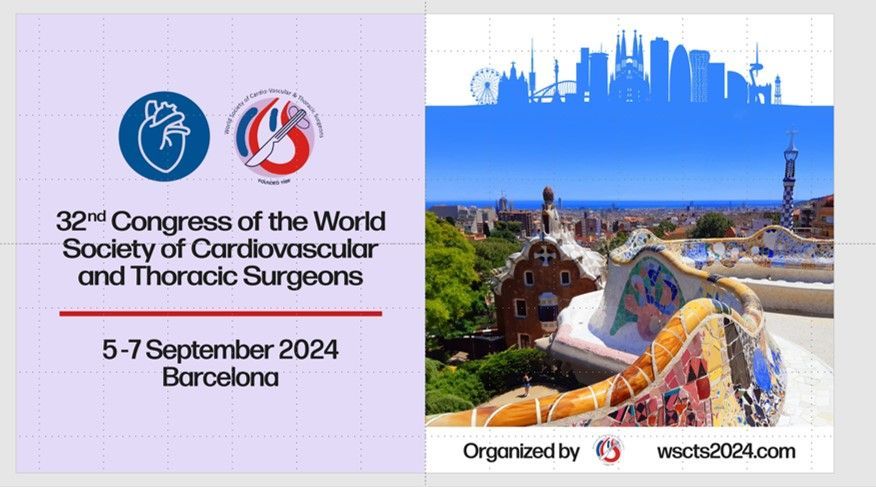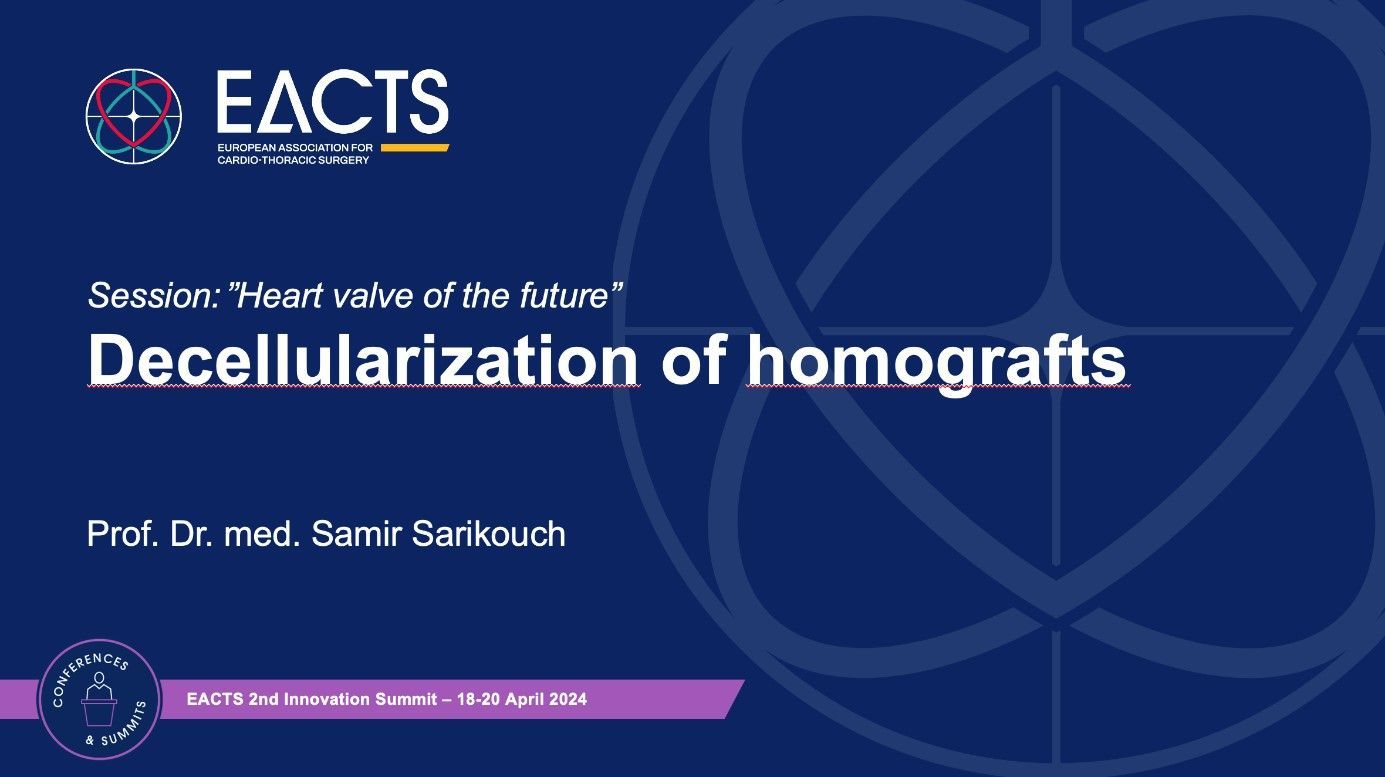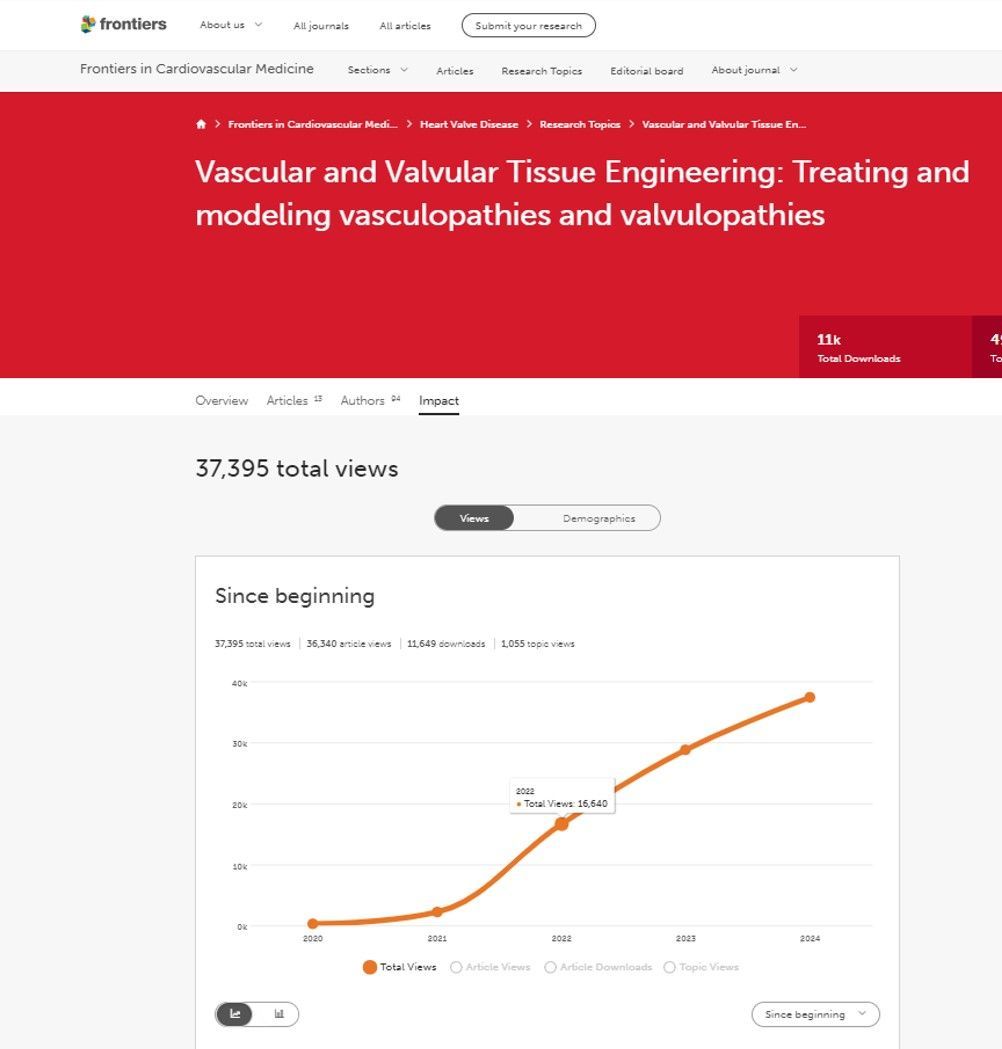32nd World Congress of the World Society of Cardiovascular and Thoracic Surgeons
The 32nd World Congress of the World Society of Cardiovascular and Thoracic Surgeons (WSCTS), is going to be held in Barcelona, Spain, between the 5th and the 7th of September, 2024. Within the session “Cardiovascular Tissue Banking” Dr. Sarikouch is going to present “Long-term results of modern homografts”. Decellularized pulmonary and aortic homografts have been studied in prospective European-wide multi-center settings and 5-year data for decellularized pulmonary as well as for decellularized aortic homografts have been published within the European Journal for Cardiothoracic surgery together with long-term data from the ESPOIR and ARISE Registries.
https://academic.oup.com/ejcts/article/62/5/ezac219/6568944
https://academic.oup.com/ejcts/article/65/4/ezae121/7635581

EACTS 2nd Innovation Summit, 18-20. April, Paris
The 2nd EACTS Innovation Summit was held at the Chateau Les Pres d`Ecoublay near Paris this April. Sessions were dedicated to the “Future of Robotic Surgery”, “Extracorporal Circulation”, “Artificial Intelligence for Cardiothoracic Surgery” and the “Heart valve of the future”. Within this latter session, Dr. Sarikouch presented the results of two European-wide studies on decellularized homografts for pulmonary and aortic valve replacement as well as an outlook for decellularized allogenic heart valves derived from genetically modified animals.
https://www.eacts.org/our-community/news-hub/eacts-hosts-paris-innovation-summit/

Serial assessment of early antibody binding to decellularized valved allografts.
Decellularized homografts (DHV) are currently the only clinically applied tissue-engineered heart valves and have shown superior performance in comparison with conventional cryopreserved allografts in a recent meta-analysis for pulmonary valve replacement.(Waqanivavalagi S et al. Clinical performance of decellularized heart valves versus standard tissue conduits: a systematic review and meta-analysis. J Cardiothorac Surg. 2020)
https://www.frontiersin.org/journals/cardiovascular-medicine/articles/10.3389/fcvm.2022.895943/full

